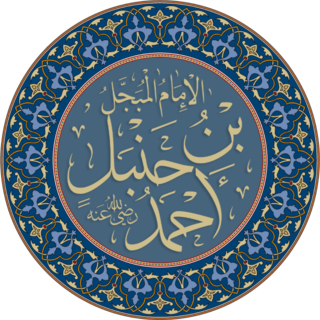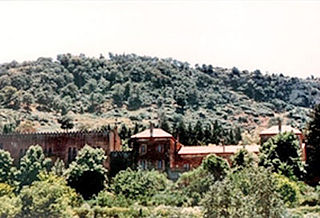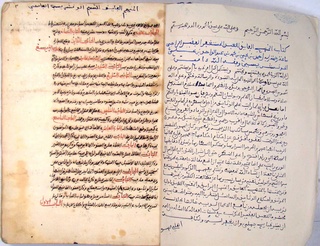
Wahhabism is a Sunni revivalist and fundamentalist movement associated with the reformist doctrines of the 18th-century Arabian Islamic scholar, theologian, preacher, and activist Muhammad ibn Abd al-Wahhab. He established the Muwahhidun movement in the region of Najd in central Arabia, a reform movement with a particular emphasis on purging practices such as the veneration of Muslim saints and pilgrimages to their tombs and shrines, which were widespread amongst the people of Najd. Ibn ʿAbd al-Wahhab and his followers were highly inspired by the influential thirteenth-century Hanbali scholar Ibn Taymiyyah who called for a return to the purity of the first three generations (Salaf) to rid Muslims of inauthentic outgrowths (bidʻah), and regarded his works as core scholarly references in theology. While being influenced by their Hanbali doctrines, the movement repudiated Taqlid to legal authorities, including oft-cited scholars such as Ibn Taymiyya and Ibn Qayyim.

Ibn Taymiyyah, birth name Taqī ad-Dīn ʾAḥmad ibn ʿAbd al-Ḥalīm ibn ʿAbd al-Salām al-Numayrī al-Ḥarrānī, was a Sunni Islamic scholar, muhaddith, judge, philosopher, and sometimes controversial thinker and political figure. He is known for his diplomatic involvement with the Ilkhanid ruler Ghazan Khan and for his involvement at the Battle of Marj al-Saffar which ended the Mongol invasions of the Levant. A member of the Hanbali school, Ibn Taymiyyah's iconoclastic views on widely accepted doctrines of his time, such as saint veneration and the visitation of tomb-shrines, made him unpopular with many scholars and rulers of the time, and he was imprisoned several times.
The Salafi movement, also called the Salafist movement, Salafiyyah and Salafism, is a reform branch movement within Sunni Islam that originated during the nineteenth century. The name derives from advocating a return to the traditions of the "pious predecessors", the first three generations of Muslims that are believed to exemplify the pure form of Islam. Those generations include the Islamic prophet Muhammad and his companions whom he himself taught, their successors, and the successors of the successors. Practically, Salafis maintain that Muslims ought to rely on the Qur'an, the Sunnah and the 'Ijma (consensus) of the salaf, giving them precedence over the later religious interpretations. The movement aimed at a renewal of Muslim life and imparted a major influence on many Muslim thinkers and movements across the Islamic world. Since its inception, Salafism has been evolving through the efforts of numerous Islamic reformers, whose activities spread across various regions.

Aḥmad ibn Ḥanbal, or Ibn Ḥanbal, was an Arab Muslim jurist, theologian, ascetic, hadith traditionist, and founder of the Hanbali school of Sunni jurisprudence — one of the four major orthodox legal schools of Sunni Islam.
Takfir or takfeer denotes excommunication from Islam of one Muslim by another, i.e. accusing another Muslim to be an apostate. The word is found neither in the Quran nor in the hadiths. Kufr and kafir and other terms employing the same triliteral root k-f-r appear. "The word takfir was introduced in the post-Quranic period and was first done by the Khawarij," according to J. E. Campo. The act which precipitates takfir is termed mukaffir. A Muslim who declares another Muslim to be an unbeliever or apostate is a takfiri.

Islamic military jurisprudence refers to what has been accepted in Sharia and Fiqh by Ulama as the correct Islamic manner, expected to be obeyed by Muslims, in times of war. Some scholars and Muslim religious figures describe armed struggle based on Islamic principles as the Lesser jihad.
Shihab al-Din Abu al-Abbas Ahmad ibn Fadlallah al-Umari, commonly known as Ibn Fadlallah al-Umari or al-Umari, was an Arab historian, born in Damascus. His major works include at-Taʾrīf bi-al-muṣṭalaḥ ash-sharīf, on the subject of the Mamluk administration, and Masālik al-abṣār fī mamālik al-amṣār, an encyclopedic collection of related information. The latter was translated into French by Maurice Gaudefroy-Demombynes in 1927.
Syed Nazeer Husain Dehlawi was a leading scholar of the reformist Ahl-i Hadith movement and one of its major proponents in India. Earning the appellation shaykh al-kull for his authority among early Ahl-i Hadith scholars, he is regarded, alongside Siddiq Hasan Khan (1832–1890), as the founder of the movement and has been described as "perhaps the single most influential figure in the spread of the Ahl-i-Ḥadīth".

Shaykh al-Islām was used in the classical era as an honorific title for outstanding scholars of the Islamic sciences. It first emerged in Khurasan towards the end of the 4th Islamic century. In the central and western lands of Islam, it was an informal title given to jurists whose fatwas were particularly influential, while in the east it came to be conferred by rulers to ulama who played various official roles but were not generally muftis. Sometimes, as in the case of Ibn Taymiyyah, the use of the title was subject to controversy. In the Ottoman Empire, starting from the early modern era, the title came to designate the chief mufti, who oversaw a hierarchy of state-appointed ulama. The Ottoman Sheikh al-Islam performed a number of functions, including advising the sultan on religious matters, legitimizing government policies, and appointing judges.
Muḥammad al-Shawkānī (1759–1839) was a Yemeni scholar of Islam, jurist and reformer.
Le Statut des Moines is a short French translation of Muslim jurist Ibn Taymiyyah's Mardin fatwa by Yahyah Michot, published in 1997, under the pseudonym of Nasreddin Lebatelier. The translation is considered a misprint and a gross misinterpretation of the original.
Abū Muṣʿab Aḥmad ibn Abī Bakr al-Qāsim ibn al-Ḥārith al-Zuhri, 767–856 CE / 150–242 AH, was a Muslim scholar and judge who was a student of Malik ibn Anas.
Abu Abdul-Rahman Amine, born Djamel bin Mohamed Zitouni, was the leader of the Algerian Armed Islamic Group (1994–1996), a terrorist group responsible for carrying out a series of bombings in France in 1995. He was killed by a rival faction on July 16, 1996.

On the night of 26–27 March 1996, seven monks of the Trappist order from the Our Lady of the Atlas Abbey of Tibhirine near Médéa, Algeria, were kidnapped during the Algerian Civil War. They were held for two months, and found dead in late May 1996. The circumstances of their kidnapping and death remain controversial; the Armed Islamic Group claimed responsibility for both, but in 2009, retired General François Buchwalter reported that the monks were killed by the Algerian army.
Saleh Al-Fawzan is an Islamic scholar and has been a member of several high religious bodies in Saudi Arabia. He is considered to be the most senior scholar of Islam in Saudi Arabia.

Of Gods and Men is a 2010 French drama film directed by Xavier Beauvois, starring Lambert Wilson and Michael Lonsdale. Its original French language title is Des hommes et des dieux, which means "Of Men and of Gods" and refers to a verse from the Bible shown at the beginning of the film. It centers on the monastery of Tibhirine, where nine Cistercian monks lived in harmony with the largely Muslim population of Algeria, until seven of them were kidnapped and assassinated in 1996 during the Algerian Civil War.

Quṭb-ud-Dīn Aḥmad Walīullāh Ibn ʿAbd-ur-Raḥīm Ibn Wajīh-ud-Dīn Ibn Muʿaẓẓam Ibn Manṣūr Al-ʿUmarī Ad-Dehlawī, commonly known as Shāh Walīullāh Dehlawī, was an Islamic scholar seen by his followers as a renewer.

Ahmad ibn Yahya al-Wansharisi was a Maghrebi Berber Muslim theologian and jurist of the Maliki school around the time of the fall of Granada. He was one of the leading authorities on the issues of Iberian Muslims living under Christian rule.
The Martyrs of Algeria were a group of nineteen individuals slain in Algeria between 1994 and 1996 during the Algerian Civil War. They all were priests or professed religious belonging to religious congregations, including seven Trappist Cistercian monks; one was a bishop. Their nations of origin were France (15), French protectorate of Tunisia (1), Spain (2), and Belgium (1).
Bernard de Give was a Belgian priest and writer who became a monk of Scourmont Abbey.








